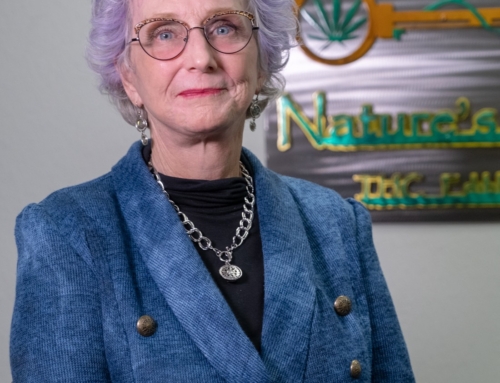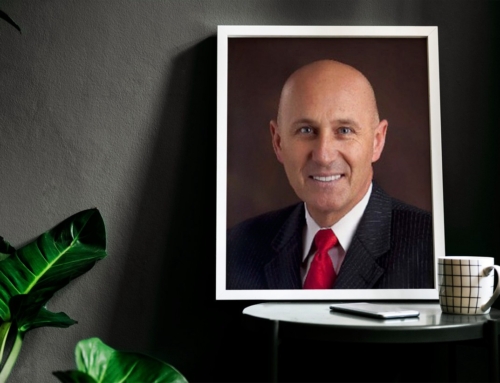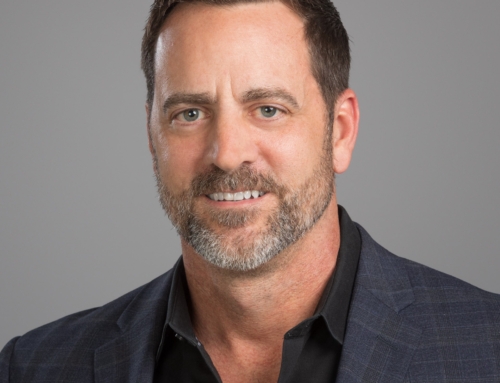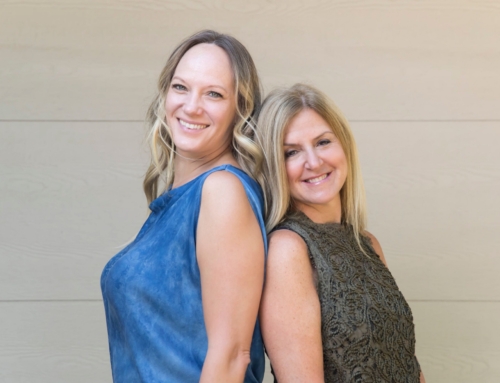Allison Kopf is the founder and CEO of Artemis, the market leading Cultivation Management Platform serving the fruit, vegetable, floriculture, cannabis, and hemp industries. Artemis won the highly coveted Disrupt Cup at TechCrunch Disrupt in San Francisco. Kopf was recently named one of Forbes 2019 30 Under 30. Allison is an Investment Partner at XFactor Ventures and serves on the boards of Cornell University’s Controlled Environment Agriculture program and Santa Clara University’s College of Arts and Sciences. She is a Techstars Farm to Fork mentor and holds a BS in Physics from Santa Clara University.
Thank you so much for doing this with us! Can you tell us the “backstory” about what brought you to the cannabis industry?
I’ve been in the agriculture industry virtually my whole career. I worked in operations for a greenhouse grower before starting Artemis, touching both the on-farm operations as well as company scaling. What I saw from day one at the greenhouse was the same need I work on now: bringing consistency farm operations is means to better profitability for the farms, higher quality of life for farmworkers, and creating a safe, traceable supply chain.
We got started in specialty crops five years ago and expanded into cannabis about two years ago. We’ve always existed to reduce risk in the supply chain while working with famers to stabilize their own operations, so cannabis is a natural fit for us. As a new industry, there is a lot of risk to manage and growers are in the early days of figuring out best practices and how to operate. Artemis can solve both of these challenges.
Our solution is simple: give growers a platform to track all their data in one place, digitizing everything from compliance forms to labor management. When you can visualize data by simply pulling out your phone, all of a sudden that data has power. This is especially useful for cannabis growers, who must meticulously track their compliance in a highly regulated market.
I’m in the business of keeping these farmers in business. Artemis helps cannabis farmers stay compliant while leveraging data to its fullest extent. We’re all about risk management, and we’re drawn to cannabis farmers because they are in one of the riskiest subsets of the already high-risk industry of agriculture. The cannabis market is growing so quickly, and regulations are constantly shifting. In this context, growers need a platform to give them consistency. I want to make cannabis operations virtually risk-free. Our vision is to create a more efficient, traceable, and compliant agricultural economy, and we’re working with cannabis growers to make that happen.
Can you share the most interesting story that happened to you since you began leading your company? Can you tell us what lesson you learned from that?
I’ll always remember the day we pitched our first enterprise account in 2018. At that time we weren’t selling to enterprise accounts yet. The customer asked us midway through our pitch to stop. Whenever you get interrupted midway through a pitch, your heart beats a little bit faster. Instead of asking us to leave, he wanted us to come back a few hours later to pitch their finance and operations teams because he loved our product. We both had flights that afternoon but immediately rescheduled the flights. We went to a diner nearby and on the back of a napkin drafted what would become our enterprise model to pitch that afternoon.
That day, we knew we were ready to shift our entire focus to enterprise, which was our long-term goal all along. I still have that napkin to this day. It serves as a reminder of how, as an entrepreneur, your strategic focus can change in the blink of an eye. I learned a critical lesson through this experience: entrepreneurs have to be not only open to change; they have to be prepared for it because opportunity often comes when you least expect it.
Can you share a story about the funniest mistake you made when you were first starting? Can you tell us what lesson you learned from that?
I make a ton of mistakes; that’s part of being an entrepreneur. They’re not usually funny mistakes, but one time I had a gaffe that is certainly worth laughing about in hindsight. I had a jacket on with my business cards in the pocket and was on a sales roadshow. We were visiting three big enterprise prospects one after another, all of whom are competitive. At the third operation, I reached into my pocket and handed the CEO what I thought was my business card. Turns out, it was the CEO from the first visit’s card. I tried to play it cool and exchange the card for mine as quickly as possible and left the meeting incredibly embarrassed.
The next day, that company signed a deal with us. They wanted to beat their competition and if we were in the running for the other operation, they wanted to get on us first. It taught me not only about leveraging competition but also how important it is to tell customer stories, to show how Artemis works for our customers and share the voices of growers whose days are easier because of our software.
Do you have a funny story about how someone you knew reacted when they first heard you were getting into the cannabis industry?
When I first started working for a hydroponic lettuce producer about a decade ago, my grandmother would ask me constantly, “Are you going to grow pot? Because pot is a drug and I don’t think you should be working with drugs.” Of course, we weren’t growing pot. We were a lettuce producer.
When I started Artemis, my grandmother again asked, “Will you work with cannabis producers?” Only now she added “Because you should. Seems like a big opportunity and they could use your help!” She’s proud we work with cannabis growers now.
None of us are able to achieve success without some help along the way. Is there a particular person who you are grateful towards who helped get you to where you are? Can you share a story?
I have been lucky to have been surrounded by an extraordinary team.
Are you working on any new or exciting projects now? How do you think that will help people?
We are currently working on lots of new exciting features. One of the things we’ve announced recently is the Artemis Partner Network. We’re also gearing up for a big product launch, but I can’t share too many details just yet.
Ok. Thank you for all that. Let’s now jump to the main core of our interview. Despite great progress that has been made we still have a lot more work to do to achieve gender parity in this industry. According to this report in Entrepreneur, less than 25 percent of cannabis businesses are run by women. In your opinion or experience, what 3 things can be done by a)individuals b)companies and/or c) society to support greater gender parity moving forward?
We’re seeing a severe lack of investment in women across agriculture right now. I was recently included in an industry report that highlighted the disparities in funding between female and male-owned agriculture startups. Within the agtech industry, only 3% of investment dollars went to women-only founders, and there was a 37% decline in female funding from 2017 to 2018.
We need to change this. One simple solution is to invest in women. That’s why I’m an investment partner at Xfactor Ventures, which expressly invests in female founders. When venture-backed, women in startups generate 12% higher revenue than their male counterparts. I don’t just invest in women to fight inequality; I do it because it works. And we need to write bigger checks. It’s not just about access to capital, it’s about access to the right capital to scale billion-dollar businesses.
We also need to focus on supporting work cultures of inclusivity and diversity. In the last six months, Artemis has doubled in size, but we have done so with the careful consideration of representation. Artemis not only makes a point of hiring women, but we also seek out and are buoyed by the perspectives of non-binary team members. 6% of our team is non-binary, higher than the national average. I recommend exploring hiring initiatives that keep inclusivity at the center. For instance, I love Ellen K. Pao’s 10-10-5-45 guidelines for racial and gender inclusion. Ultimately there is no foundation without representation.
Finally, organizations need to evaluate how to combat the gender wage gap. An interesting solution, one that has been remarkably successful at Artemis, is rejecting salary negotiation. Studies have shown that women are significantly less likely to negotiate salary, often causing organizations to unconsciously perpetuate wage disparity. Artemis has adopted transparent pay grades by position to eliminate the gender pay gap from the outset.
You are a “Cannabis Insider”. If you had to advise someone about 5 non intuitive things one should know to succeed in the cannabis industry, what would you say? Can you please give a story or an example for each.
Compliance is about more than just appeasing regulators. As Artemis’ Regulatory Compliance Specialist, Amanda Carter, often says, “compliance is a way to demonstrate accountability to consumers.” The best way to build loyalty and trust with consumers is by engaging in compliance activities that ensure that your product is safe.
An Ounce of Protection is Worth a Pound of Cure: Invest in mitigating product safety issues early and often. It might seem like a lot to implement a new traceability software or hire a consultant, but the truth is that these investments will protect you from future risks that ultimately cost much, much more.
Train Compliance: Compliance begins at the top, but if it doesn’t filter down to individual employees, you might find that the little (yet important) things get ignored. Train your workforce in compliance so that they can protect your operation from the ground up.
Labor Efficiency Will Determine Profitability: According to the USDA, labor cost crop farmers $24.5 billion last year, one of their largest expenditures. We know of several operations that used to spend the first hour of every day just trying to visualize and assign tasks to their employees. This wasted time builds up and greatly decreases profitability. By working with Artemis, these operations no longer need to waste time whiteboarding in the mornings; all their tasks are clearly tracked and assigned on Artemis.
Make use of your data! Too many cannabis growers are still tracking their operations with notebooks, clipboards, and excel sheets! The grower’s notebook is a legendary feature of the farm, but in the midst of the digital revolution, it should be just that: a legend, not a reality. I recently met with a farmer who had piles of notebooks just sitting in filing cabinets collecting dust. Why track information if it is not accessible? Cannabis growers need to track their operational data on platforms like Artemis that can not only make it accessible but also make it actionable.
Can you share 3 things that most excite you about the cannabis industry?
I love how fast-growing and fresh this industry is. Things move quickly and innovation is on the fast track. On the flip side, it seems like every day there is a new story about a huge company running into some sort of regulatory or product snag. Cannabis is a bit of a rollercoaster, but it has been a wild and fun ride.
With the highs come the lows, and a big draw for us at Artemis is understanding and reacting to the struggles of our growers. There are so many regulations that are constantly shifting, and it can be difficult to keep track of everything. Combine that with a high level of scrutiny on a young industry, and you have a risky business. Our role at Artemis is to mitigate risk for all our growers, but this is especially true of cannabis growers. Cannabis fits right into our passion for helping specialty crop growers minimize risk, increase profit margins, and scale their businesses.
Finally, and most importantly, I find myself drawn to the supportive and passionate community of cannabis growers. For many, they’ve found a way to turn their hobby into their profession. They are full of energy and enthusiasm, and I find that downright infectious. The heart of the cannabis industry is its growers, and I could not be more pleased to work with them on a daily basis.
Can you share 3 things that most concern you about the industry? If you had the ability to implement 3 ways to reform or improve the industry, what would you suggest?
I’m most concerned about growers staying in business. Last month alone the California Department of Food and Agriculture (CDFA) sent 103 letters to cannabis farmers informing them that their licenses would be suspended for failure to properly track-and-trace their crops using the mandatory program, Metrc. That’s why we’ve integrated the Artemis platform with Metrc. We want our growers to be compliant with their state’s mandatory program while still having access to the data insights of Artemis, and we want them to do this without having to repeatedly enter data.
I’m also concerned by situations such as the CannTrust debacle. The goal of my work with Artemis is to create a more efficient, traceable, and compliant agricultural economy. Transparency is at the heart of this. When organizations such as CannTrust violate the trust of regulators and consumers alike through shady and illegal practices, it harms the entire industry. In the wake of CannTrust, cannabis growers need to double down on compliance. If I could, I would wave a magic wand and create a supply chain that was fully traceable and transparent, but the truth is that we aren’t that far away; we just need buy-in from everyone.
Finally, I think we need to continue to develop the dialogue between regulators and growers. This is happening right now in hemp with regard to the new USDA regulations. The input I’m hearing from growers is that many of the regulations are being interpreted too strictly. When asked about the regulations, hemp entrepreneur Jim Higdon said, “There’s only one spot that I can think of where they didn’t interpret the rules as strictly as possible,” and that was related to a ban on industry participation for individuals with prior drug felonies. Currently, the USDA is inviting industry professionals to submit comments on the proposed legislation. At the time of this Q&A, nearly 700 comments are publicly available. Hemp farmers need to continue to make their voices heard. If a critical mass of growers submit their thoughts before the December 30 deadline, it could have a real impact on the trajectory of U.S. hemp regulations, and cannabis growers should take note!
What are your thoughts about federal legalization of cannabis? If you could speak to your Senator, what would be your most persuasive argument regarding why they should or should not pursue federal legalization?
Federal legislation is, in my opinion, inevitable. When we work with Senators and the USDA we advocate for good process and procedure over legislation. Each state mandates software for traceability, for example. But that software was designed for regulators, not growers. As a result, growers spend a lot of time and money working in the software, which ultimately is useful for taxation but not traceability and product safety. And that’s assuming the software works, which it often doesn’t. What the industry needs is a comprehensive set of guidelines and laws to follow and the freedom to choose what tools they use to implement these guidelines. And then we need strict accountability to ensure rules are followed. We will continue advocating for this, especially as legalization is considered.
Today, cigarettes are legal, but they are heavily regulated, highly taxed, and they are somewhat socially marginalized. Would you like cannabis to have a similar status to cigarettes or different? Can you explain?
It’s not up to me. This will be the direction we move in and so what we need to pay attention to is how we ensure growers don’t get priced out immediately, due to cost of operating in this legal framework.
Can you please give us your favorite “Life Lesson Quote”? Can you share how that was relevant to you in your life?
“A girl can dream.” My mother used to tell me this when I was a little girl. I’ve always been a voracious worker. I feed off of success and accomplishment and work hard for it. This quote always reminds me to couple hard work with a dream, to think bigger and to not be afraid of falling flat.
You are a person of great influence. If you could inspire a movement that would bring the most amount of good to the greatest amount of people, what would that be? You never know what your idea can trigger. 🙂
I believe in a world where all people are treated with dignity and are truly equal. I will continue fighting to ensure women have equal opportunity for funding. I will continue building a diverse and inclusive team. I will continue to be involved in immigration issues and work closely with not just farm owners but also farmworkers. And I believe it’s within our grasp to have a safe, traceable supply chain where people don’t get sick from consuming plants.
Thank you so much for the time you spent with this. We wish you only continued success!









![“The potential to help people [in this industry] is enormous, but there’s still so much to learn.” – Ramon Alarcon, Witi](https://lakesideremedy.com/wp-content/uploads/2020/12/1thj5ekUyxQ69iLz1JJyODg-scaled-e1607882756286-500x383.jpeg)
